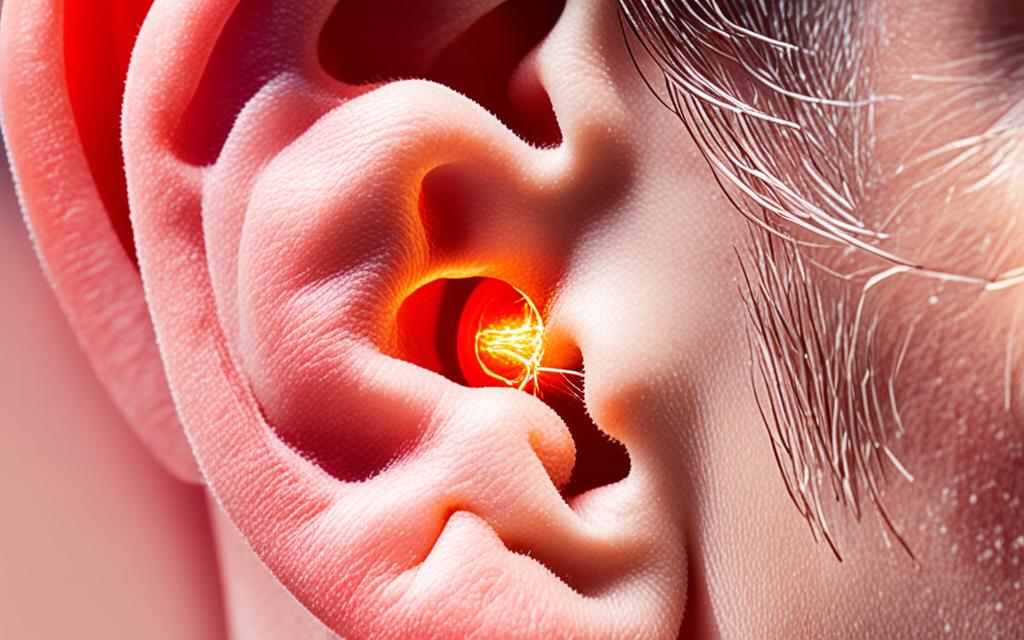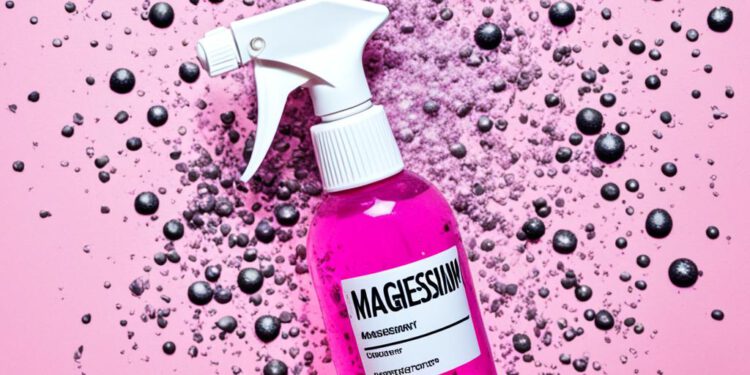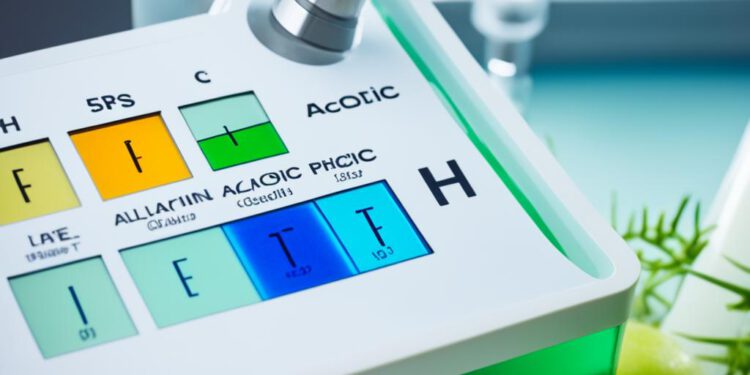Crackling or popping sounds in the ears can be a frustrating and uncomfortable experience. This article will explore the common causes of crackling in ears and provide effective home remedies to stop the annoying crackle and regain comfort in your ears. We’ll also discuss when it’s best to see a doctor for persistent or severe cases.
Understanding Crackling Ears
Crackling or popping sounds in the ears can have various underlying causes. Some of the most common reasons include:
- Ear wax buildup: Excessive ear wax can create a blockage that leads to crackling or popping sensations when moving the jaw or swallowing.
- Sinus and respiratory infections: Inflammation or congestion in the nasal passages and Eustachian tubes can cause the ears to crackle.
- Eustachian tube dysfunction: Problems with the Eustachian tubes, which connect the middle ears to the back of the throat, can result in crackling sounds.
Understanding the root cause of your crackling ears is the first step in finding the right solution.
Ear Wax Buildup: A Leading Culprit
One of the most common reasons for ear wax buildup causing crackling is an accumulation of ear wax. Ear wax, or cerumen, is a natural substance produced by the body to protect the ear canal. However, excessive buildup can create a blockage, leading to a sensation of crackling or popping, especially when moving the jaw or swallowing.
If you’re experiencing how to remove ear wax at home, there are several steps you can take to address the issue. Gently cleaning the outer ear with a soft, damp cloth can help, but it’s important to avoid sticking objects into the ear canal, as this can push the wax deeper and worsen the problem.
Over-the-counter ear drop solutions designed to soften and remove excess ear wax can be a highly effective solution for ear wax buildup causing crackling. These products can help break down the wax, allowing it to drain naturally or be removed more easily.
In some cases, more stubborn ear wax buildup may require professional how to remove ear wax at home treatment, such as ear irrigation or microsuction. If home remedies don’t provide relief, it’s best to consult with a healthcare professional who can properly assess the situation and recommend the appropriate course of action.
Sinus and Respiratory Infections
Sinus and respiratory infections can also contribute to crackling or popping sounds in the ears. When the nasal passages and Eustachian tubes become inflamed or congested due to an sinus infection or respiratory infection, it can disrupt the normal airflow and pressure regulation in the ears, resulting in the characteristic crackling sensation.
This disruption in the Eustachian tubes, which connect the middle ears to the back of the throat, can lead to a buildup of pressure and the feeling of your ears “popping” or crackling, especially when swallowing, yawning, or changing altitude. The inflammation and congestion caused by sinus infections and respiratory infections can impede the proper functioning of the Eustachian tubes, contributing to the crackling or popping you may experience in your ears.
If you’re dealing with a sinus infection or respiratory infection and are noticing crackling or popping in your ears, it’s important to address the underlying infection to help alleviate the ear-related symptoms. Seeking medical treatment for the sinus or respiratory condition can be an effective way to resolve the Eustachian tube dysfunction and stop the annoying crackling in your ears.
Eustachian Tube Dysfunction
The Eustachian tubes are responsible for equalizing the air pressure between the middle ear and the surrounding environment. When these tubes become blocked or dysfunctional, it can lead to a crackling or popping sound in the ears, especially when yawning, swallowing, or changing altitude.
Eustachian tube dysfunction is a common cause of eustachian tube dysfunction and crackling ears. This condition can be caused by various factors, including:
- Sinus or respiratory infections that cause inflammation and swelling in the Eustachian tubes
- Structural abnormalities or blockages in the Eustachian tubes
- Changes in atmospheric pressure, such as during air travel or diving
- Allergies or other inflammatory conditions that affect the nasal and sinus passages
To unclog eustachian tubes and alleviate the crackling sensation, you can try the following techniques:
- Perform the Valsalva maneuver: Gently pinch your nose, close your mouth, and gently exhale to force air into the Eustachian tubes and equalize the pressure.
- Use a saline nasal spray or neti pot to flush out any mucus or congestion in the nasal passages and Eustachian tubes.
- Avoid sudden changes in altitude and use techniques like yawning or chewing gum to help equalize the pressure in your ears.
- Consider using a decongestant or antihistamine medication if your Eustachian tube dysfunction is related to allergies or sinus issues.
If the eustachian tube dysfunction and crackling ears persists or is accompanied by other concerning symptoms, it’s important to seek medical attention. A healthcare professional can properly diagnose the underlying cause and provide appropriate treatment options, such as prescription medications or even surgical intervention in severe cases.
How to Stop Crackling in Ears
If you’re experiencing crackling in your ears, there are several home remedies you can try to alleviate the issue:
- Use over-the-counter ear drop solutions to soften and remove excess ear wax.
- Try steam inhalation or a warm compress to loosen congestion and unblock the Eustachian tubes.
- Chew gum or suck on hard candy to stimulate swallowing and help equalize the pressure in your ears.
- Avoid using cotton swabs or other objects to clean your ears, as this can push the wax deeper into the ear canal.
- Stay hydrated and use a humidifier to keep the nasal passages and Eustachian tubes moist.
By incorporating these home remedies to stop ear crackle, you can effectively get rid of crackling in ears and regain the comfort and clarity you deserve.
When to See a Doctor
While home remedies can often provide relief for mild or occasional crackling in the ears, there are certain situations when it’s best to seek medical attention. If you’re experiencing the following, it’s recommended to consult with a healthcare professional:
- The crackling or popping sensation is persistent or severe
- The crackling is accompanied by pain, ringing, dizziness, or hearing loss
- The crackling is affecting your daily activities or quality of life
- Home remedies have not provided any improvement after a few days
In these cases, it’s advisable to see an otolaryngologist (ear, nose, and throat specialist) who can properly diagnose the underlying cause of the persistent crackling in ears and provide appropriate treatment. They can perform a thorough examination, identify any underlying conditions, and recommend the best course of action to help you find relief and restore the health of your ears.
Preventing Crackling Ears
To help prevent the occurrence of crackling or popping sounds in your ears, consider the following tips:
- Practice proper ear hygiene by gently cleaning the outer ear with a soft, damp cloth, but avoid sticking objects into the ear canal.
- Stay hydrated and use a humidifier to keep the nasal passages and Eustachian tubes moist.
- Treat sinus and respiratory infections promptly to prevent complications.
- Avoid sudden changes in altitude, such as during air travel, and use techniques like yawning or chewing gum to help equalize the pressure in your ears.
- Manage any underlying conditions, such as allergies or sinus issues, that may contribute to Eustachian tube dysfunction.
By following these tips, you can help prevent crackling in your ears and maintain the health and comfort of your auditory system.
Conclusion
Crackling or popping sounds in your ears can be a frustrating and uncomfortable experience, but understanding the common causes and trying effective home remedies can help you find relief. Whether it’s due to ear wax buildup, sinus and respiratory infections, or Eustachian tube dysfunction, there are steps you can take to address the issue and regain the comfort and health of your ears.
Remember, if the crackling persists or is accompanied by other concerning symptoms, it’s best to consult with a healthcare professional for a proper diagnosis and treatment. By taking proactive steps to prevent and address the issue, you can maintain the health and comfort of your ears and avoid the persistent annoyance of the summary of how to stop crackling in ears.
By staying informed, practicing good ear hygiene, and seeking medical attention when necessary, you can effectively manage and overcome the challenge of crackling or popping sounds in your ears. With the right approach, you can regain the peace and comfort you deserve, without the constant disruption of the summary of how to stop crackling in ears.










